The NVIDIA RTX 5070 Ti was released in February of 2025. This was the third graphics card to launch as part of the RTX 5000 lineup, hitting the shelves nearly a month after the release of the RTX 5090. This graphics card has been fabled as one of the best value options amongst the 5000-series due to its potential for overclocking. After plenty of testing, we can confirm the performance is incredibly strong. However, we’ll leave the numbers for our review content. This buyer’s guide delves into the best CPUs to pair with the RTX 5070 Ti. After plenty of benchmarking, we’ve rounded up the best CPUs for the RTX 5070 Ti, covering a range of excellent processors.
This series of buyer’s guides looks at the best CPUs, PC cases, and power supplies to pair with the RTX 5070 Ti graphics card. This particular buyer’s guide delves into the best processors, where we’ve tested a diverse range of options that cater to those looking to build a powerful system or those sticking to a budget. We’ll look at each CPU’s specs, performance, and pricing to provide an overview of each processor.
The Best CPUs for the RTX 5070 Ti
1. AMD Ryzen 7 9800X3D

Unsurprisingly, the AMD Ryzen 7 9800X3D appears again in one of our buyer’s guide roundups. Because of its unrivalled performance, the Ryzen 7 9800X3D is our go-to recommendation for a gaming PC build. The 3D V-Cache is what makes the 9800X3D so strong. This cache acts as blazing-fast storage for the CPU, allowing the processor to read, write, and execute instructions incredibly quickly. This means it thrives in games with numerous instructions to conduct simultaneously.
Regarding the specs, the AMD Ryzen 7 9800X3D features eight cores and sixteen threads, which is ample for gaming. Its core count means it’s not a strong competitor in threaded workloads, but we imagine the vast majority of 5070 Ti users will likely be gaming or building a workstation PC. The boost clock maxes out at 5.2GHz, which is ideal for gaming, but enthusiasts can also push this further with some overclocking, a first for the 3D V-Cache SKUs.
| Key Specs | AMD Ryzen 7 9800X3D |
|---|---|
| Core Count | 8 |
| Thread Count | 16 |
| Base Clock Speed | 4.7GHz |
| Boost Clock Speed | 5.2GHz |
| Max Cache | 104MB |
| Default TDP | 120W |
| CPU Socket | AM5 |
| Overclockable | Yes |
Performance-wise, the Ryzen 7 9800X3D is at the top of its class when it comes to gaming. Its boost clock speed makes it a force to be reckoned with in AAA titles, and the 3D V-Cache only pushes its performance further, aligning it with CPUs like the Ryzen 9 9900X and Intel Core Ultra 9 processors. This means the Ryzen 7 9800X3D is a solid pickup for those planning on playing games at 4K with the RTX 5070 Ti.
As we’ve alluded to in this section, the Ryzen 7 9800X3D’s more notable weakness is its capability within multicore workloads. While eight cores will be sufficient for some light video editing or Photoshop, this CPU struggles in more burdensome applications, where a CPU like the Ryzen 9 9900X would thrive due to its higher core count.
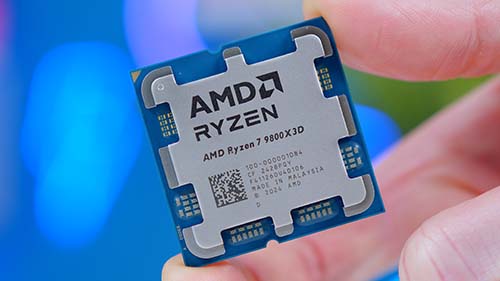
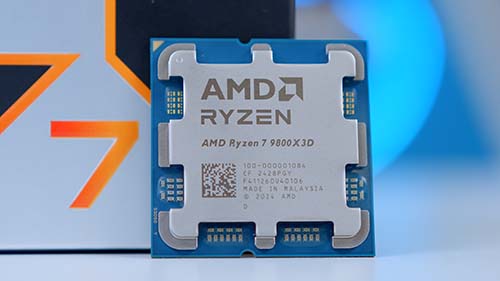
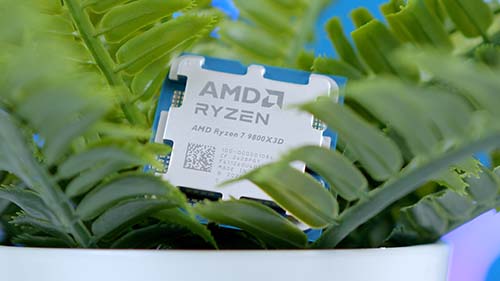
2. AMD Ryzen 5 9600X
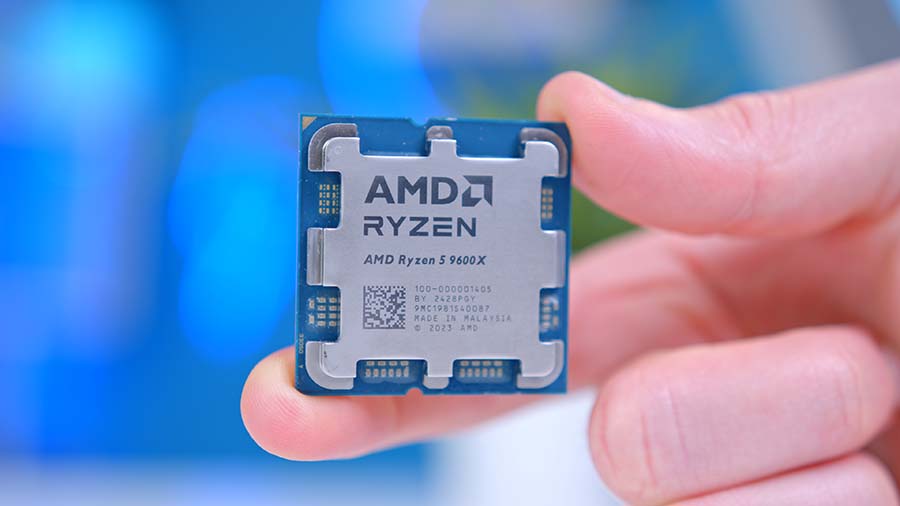
Our second pick in this roundup is the AMD Ryzen 5 9600X. The 9600X is an interesting option because, despite being a fairly cheap processor, it offers exceptional value versus its market alternatives. There are two main reasons for this: the first is its incredibly low power budget. The Ryzen 5 9600X is highly efficient, and with significant improvements over its Ryzen 7000 predecessor, it only consumes an impressive 65W. Because of this, its thermals are easily managed with a low-end cooler, saving you some money.
The second reason is its boost speed. The AMD Ryzen 5 9600X has a max speed of 5.4GHz, and thanks to its low power budget, it can sustain this relatively easily. This makes the AMD Ryzen 5 9600X an excellent choice for gaming, particularly at 1440p and 4K resolutions. The Ryzen 5 9600X is a great gaming processor, especially if you’re sticking to a budget.
| Key Specs | AMD Ryzen 5 9600X |
|---|---|
| Core Count | 6 |
| Thread Count | 12 |
| Base Clock Speed | 3.9GHz |
| Boost Clock Speed | 5.4GHz |
| Max Cache | 38MB |
| Default TDP | 65W |
| CPU Socket | AM5 |
| Overclockable | Yes |
Moving on to the specs, the Ryzen 5 9600X offers six cores and twelve threads with a max cache of 38MB. It is also overclockable, making it a solid option for those willing to tinker with overclocking. This can be easily done by using an application like Ryzen Master, allowing you to maximise the performance of your RTX 5070 Ti system.
In terms of weaknesses, as expected, the Ryzen 5 9600X is not an excellent CPU for much more than gaming. Six cores are ample for a gaming PC, but pushing the Ryzen 5 9600X with something like 3D modelling or rendering won’t yield great results. We recommend sticking purely to gaming if you pick up this CPU.
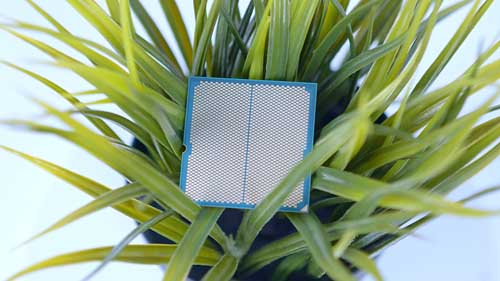
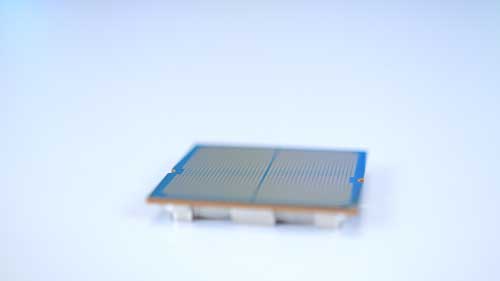
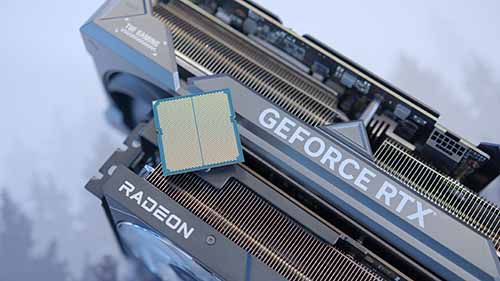
3. AMD Ryzen 7 9700X

Our third recommendation in this buyer’s guide is the AMD Ryzen 7 9700X. If you’re looking for a little more oomph than the Ryzen 5 9600X, then we recommend the Ryzen 7 9700X. This processor offers eight cores and sixteen threads, providing better mileage in challenging multicore workloads and better responsiveness and performance if you multitask while gaming.
Much like the AMD Ryzen 5 9600X, the 9700X offers a reasonably low power budget, resulting in solid thermals across the board. Furthermore, because of this power budget, the Ryzen 7 9700X can sustain its 5.5GHz clock speed, making it an ideal pickup for 1440p and 4K gaming when paired with the RTX 5070 Ti.
| Key Specs | AMD Ryzen 7 9700X |
|---|---|
| Core Count | 8 |
| Thread Count | 16 |
| Base Clock Speed | 3.8GHz |
| Boost Clock Speed | 5.5GHz |
| Max Cache | 40MB |
| Default TDP | 65W |
| CPU Socket | AM5 |
| Overclockable | Yes |
While the AMD Ryzen 7 9700X was priced relatively high, with a $400 MSRP, subsequent price drops have made the Ryzen 7 9700X much more affordable since its launch. Available at the time of writing for $312, the AMD Ryzen 7 9700X is pretty price-competitive and worth considering if you’re looking for a solid mid-range CPU.
I think the Ryzen 7 9700X’s biggest weakness is its value proposition. You can pick up the Ryzen 5 9600X for less money, and for a bit more, the 9800X3D becomes available, which trounces the Ryzen 7 9700X in terms of performance. While this is a powerful CPU, its market positioning isn’t exceptional compared to alternatives on the market.
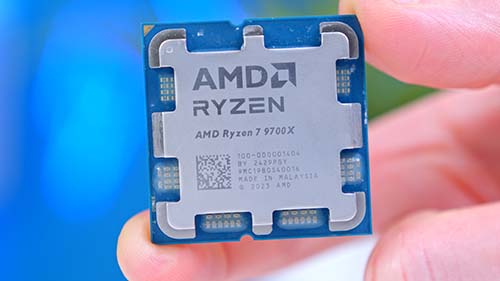
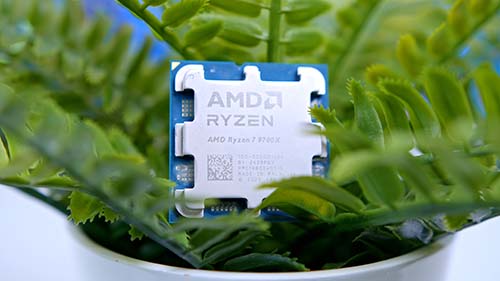
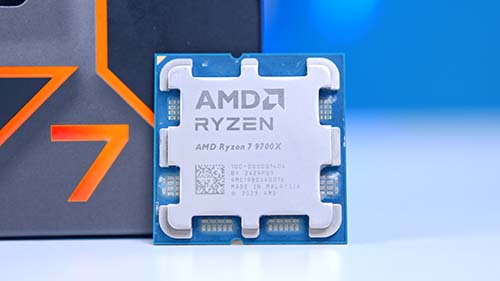
4. AMD Ryzen 7 7800X3D
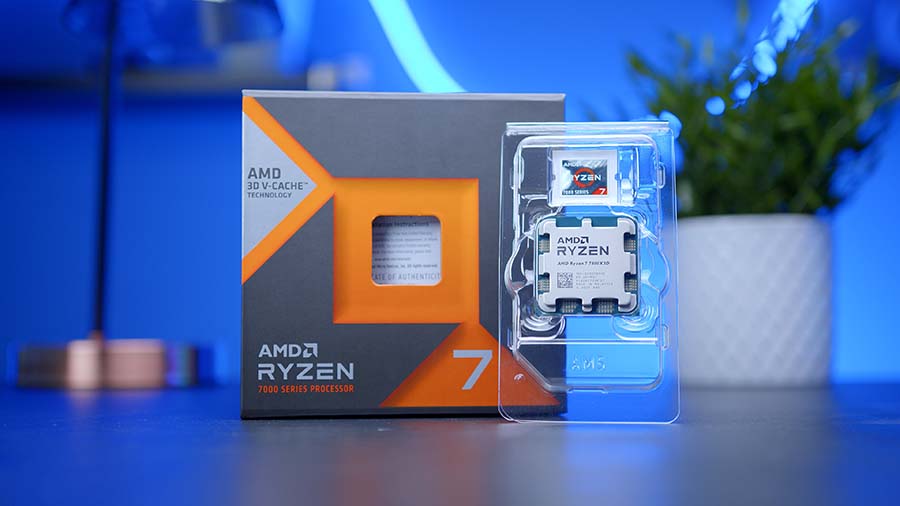
Our fourth and final recommendation in this buyer’s guide is the AMD Ryzen 7 7800X3D, an alternative to the first recommendation. This CPU offers fantastic gaming performance and only lags slightly behind the Ryzen 7 9800X3D. At the current market in August 2025, the value of this CPU is also cheaper than its successor. Both CPUs have eight cores and sixteen threads, 96MB of L3 cache, and both require a 120W power supply. The differences lie with the architecture used, base and boosted clock speeds, and whether or not they can be overclocked.
The Ryzen 7 7800X3D cannot be overclocked, and the Ryzen 7 9800X3D can. Its base clock and boosted clock speeds are also slightly lower, ranging from 4.2GHz to 5GHz, compared to the 4.7GHz to 5.2GHz of its successor. Finally, the 7 7800X3D used an older and lower instruction per cycle architecture, the Zen4.
| Key Specs | AMD Ryzen 7 7800X3D |
|---|---|
| Core Count | 8 |
| Thread Count | 16 |
| Base Clock Speed | 4.2GHz |
| Boost Clock Speed | 5GHz |
| Max Cache | 96MB |
| Default TDP | 120W |
| CPU Socket | AM5 |
| Overclockable | No |
This CPU excels at managing multi-core and multi-threaded tasks, making it ideal for gaming and content creation, and delivers consistent, strong performance. This CPU is a perfect choice if you want to save some money without sacrificing quality.
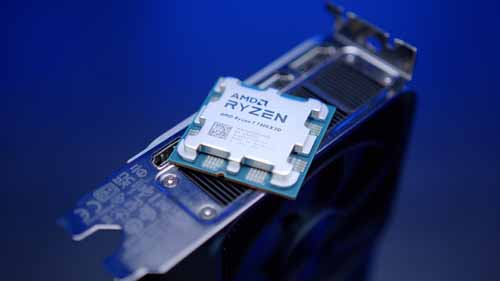
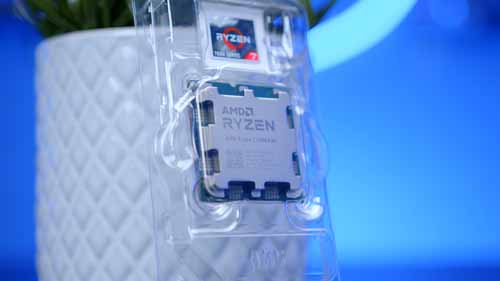
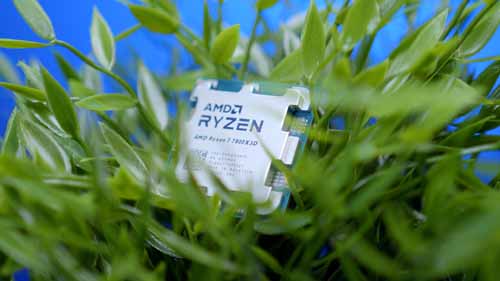
Performance
In this section, we’ll examine the performance of the CPUs we recommend in this buyer’s guide. Our in-house benchmarker, Harry Coleman, rigorously tests our data to ensure accuracy and fairness. The CPUs shown in the benchmarks below have been tested in a range of games and workstation-style applications to see how they perform across single and multi-threaded workloads.
Alan Wake 1080p High
Our first gaming benchmark was Alan Wake 2 at 1080p. Unsurprisingly, the AMD Ryzen 7 9800X3D came out on top with a 142.4 FPS average, followed by the 9600X at 133.9 FPS and the Ryzen 7 9700X with 132.3 FPS. In contrast, the Ryzen 7 7800X3D showed signs of bottlenecking. This is likely because Alan Wake 2 is more GPU-bound than CPU cache-bound. The massive L3 cache that benefits the 7800X3D in other titles doesn’t offer much advantage here, as the game relies more on single-threaded throughput and efficient draw call handling than on cache size, coupled with it being a slightly older CPU than the others we are comparing it to.
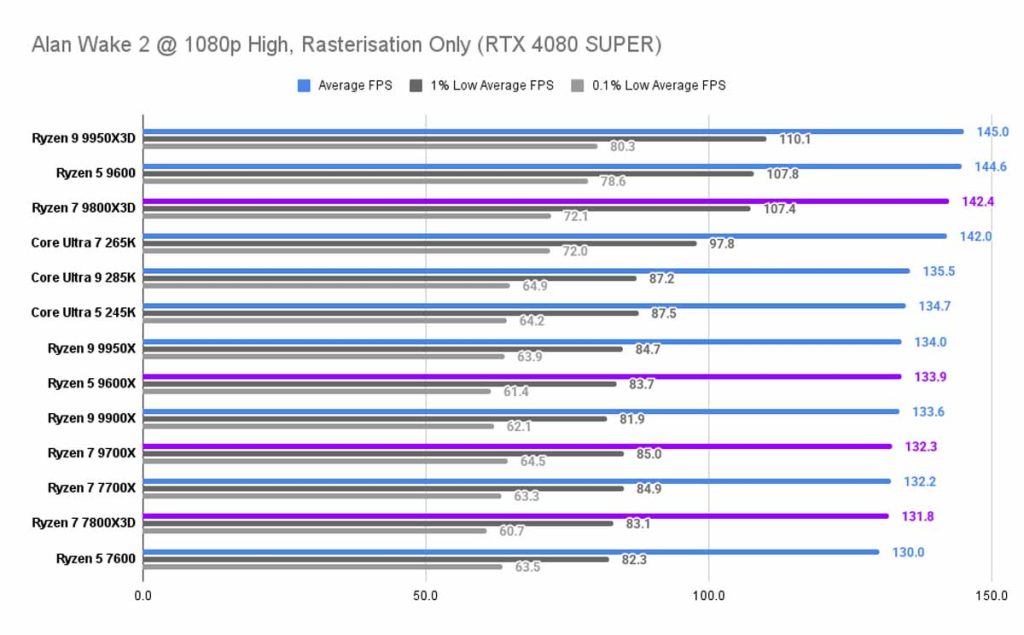
Call of Duty: Black Ops 6 1080p High
In Call of Duty: Black Ops 6 at 1080p, the AMD Ryzen 7 9800X3D and Ryzen 7 7800X3D performed much closer in this chart than in other benchmarks. The 9800X3D holds a roughly 15 FPS lead over the 7800X3D, with an impressive average of 194 FPS. Black Ops 6 is a fairly intense title, and notably cache-bound rather than clock-bound, which explains why the 9800X3D edges ahead in this test.
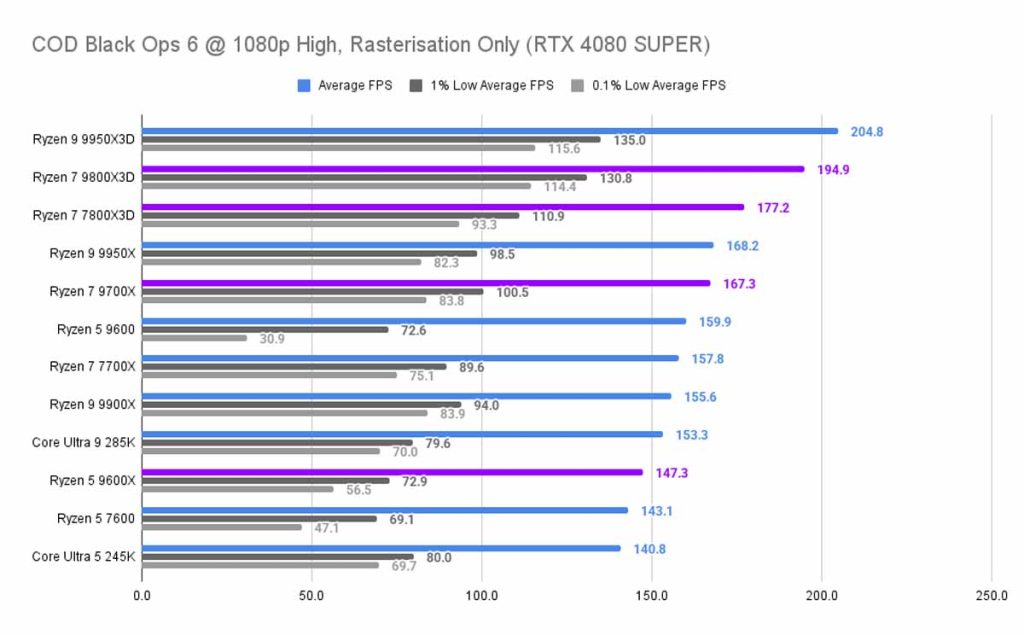
A close third is the Ryzen 9 9700X, averaging at around 167 FPS, followed by a more pronounced drop to the 9600X, which concludes the results with 147 FPS on average. The performance hierarchy appears to correlate directly with the amount of L3 cache available. Although both the Ryzen 7 9800X3D and 7800X3D feature 96MB of L3 cache, the 9800X3D pulls ahead by around 15 FPS due to improvements in architecture and core efficiency. Once cache size is equalised, performance differences stem from generational enhancements and raw processing power.
Cinebench R23 (Multi-Core)
Moving on to synthetic benchmarks, the AMD Ryzen 7 9800X3D comes out on top this time with a score of 23432 in this threaded run. The multi-core benchmark utilises all of the available cores, which for the Ryzen 7s are eight cores and sixteen threads, so it’s not a shock that they beat out the Ryzen 5 9600X. Compared to the rest of the market, all of the CPUs in this roundup aren’t multi-core titans, but all three Ryzen 7 options offer much better performance than the Ryzen 5 9600X, which is primarily built for single-core processes.
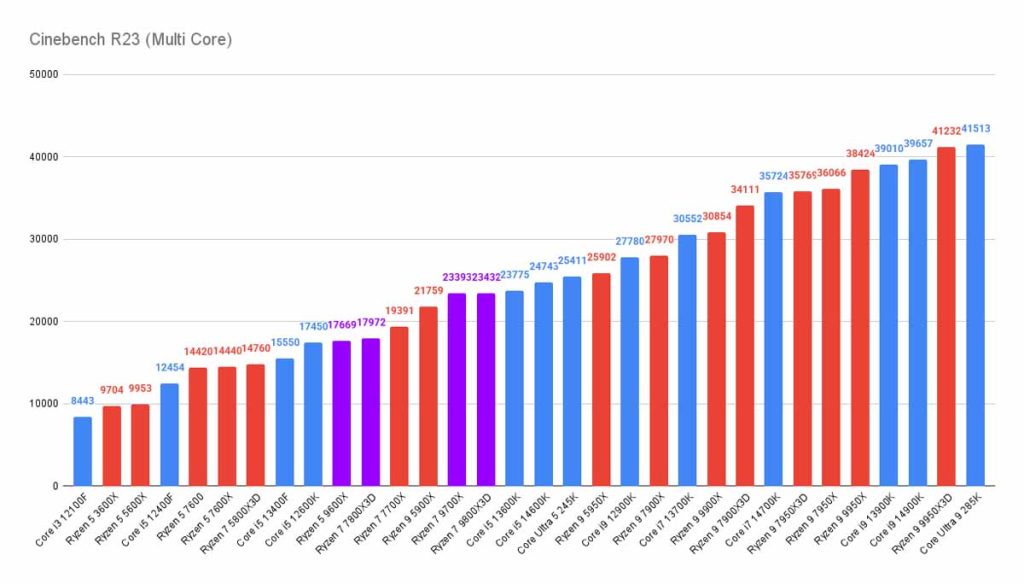
Cinebench R23 (Single Thread)
In our single-thread benchmark, the AMD Ryzen 5 9600X achieves an impressive score of 2180, surpassing the 1735 of the Ryzen 7 7800X3D, the 2104 of the Ryzen 7 9800X3D, and the 2144 of the Ryzen 7 9700X. While the Ryzen 7 9800X3D and 7800X3D are strong competitors in games, their raw single-core performance isn’t as solid as some of the other low-end Ryzen 9000 processors.
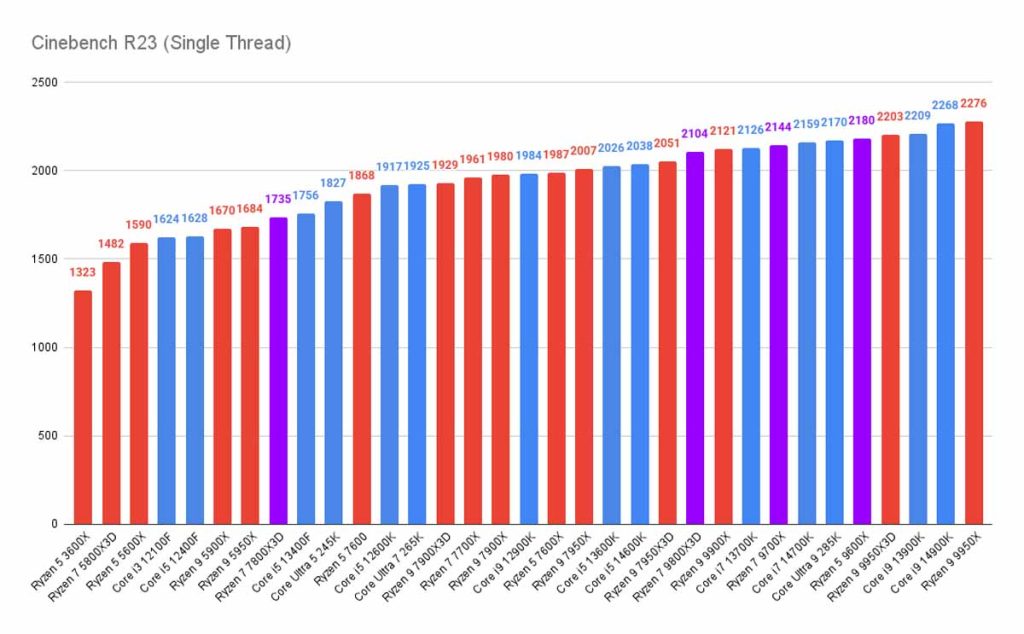
3D Mark Timespy Extreme
In our final benchmark, we fired up 3D Mark’s Timespy Extreme, which is akin to rendering a game at 4K. The Ryzen 7 9700X comes out on top overall compared to the other CPUs in this buyer’s guide, with a CPU score of 7531 and an overall score of 10092. While this is slightly weaker than the Ryzen 7 9800X3D, the overall score bumps up the 9700X, allowing it to take the lead.
The 7800X3D didn’t come out so strongly in this test, and this is because the benchmark rewards raw frequency and core count rather than cache latency, so the 7800X3D’s 3D V-Cache advantage doesn’t show up here. It came third overall at 9645 with a CPU score of 6073. The AMD Ryzen 5 9600X offered up a CPU score of 5607, which places it between the 7800X3D and 12600K.
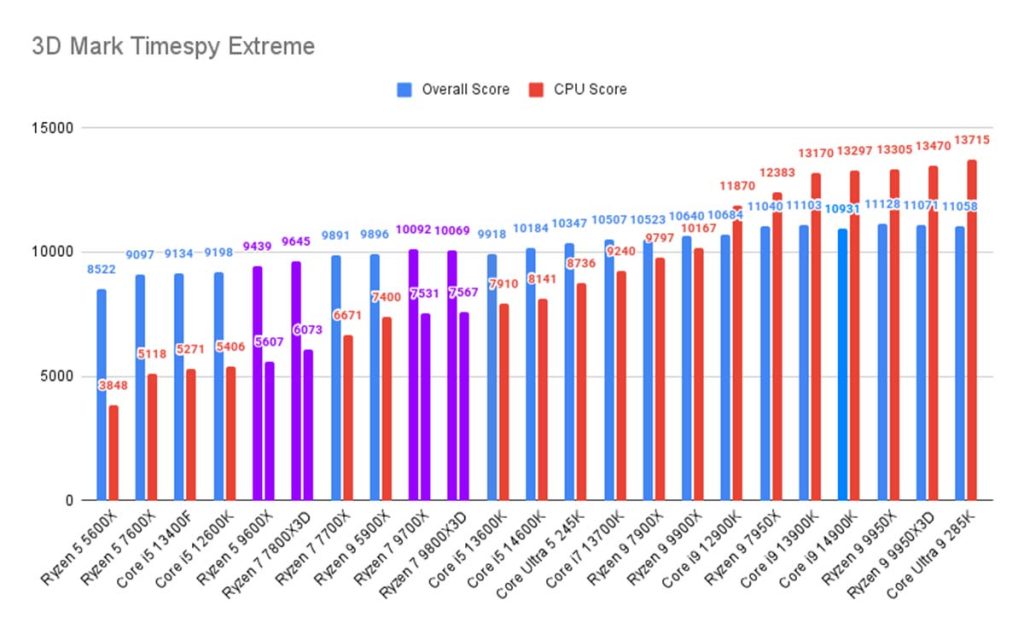


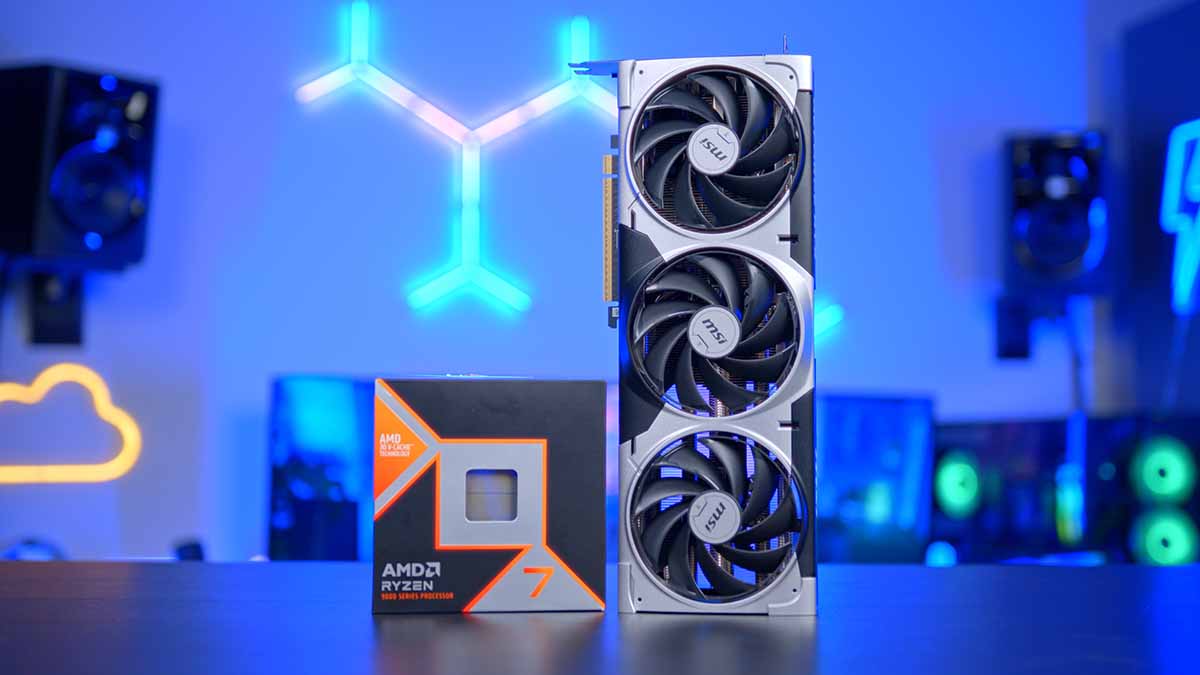
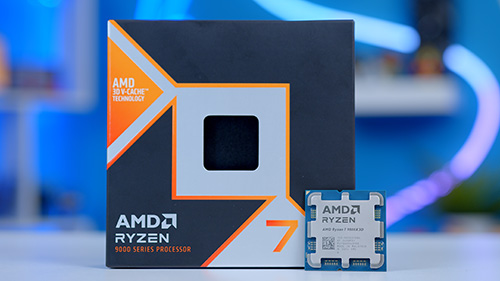
![FI_[DM89] Phanteks Evolv + AORUS 5090 9850X3D Gallery (8)](https://geekawhat.com/wp-content/uploads/2026/02/FI_DM89-Phanteks-Evolv-AORUS-5090-9850X3D-Gallery-8-551x431.jpg)
![FI_[DM88] 16GB DDR5 9060 XT Build Gallery](https://geekawhat.com/wp-content/uploads/2026/02/FI_DM88-16GB-DDR5-9060-XT-Build-Gallery-551x431.jpg)
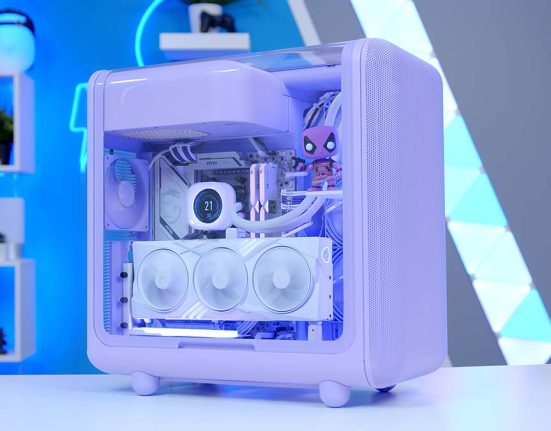
![FI_[DM87] HAVN BF & RTX 5090 Build](https://geekawhat.com/wp-content/uploads/2026/01/FI_DM87-HAVN-BF-RTX-5090-Build-551x431.jpg)

![FI_[DM86] Montech King 45 Pro + RX 9070](https://geekawhat.com/wp-content/uploads/2026/01/FI_DM86-Montech-King-45-Pro-RX-9070-551x431.jpg)